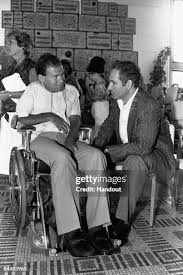
Introduction
Benjamin Netanyahu, a prominent Israeli politician, has been a pivotal figure in the Middle East for decades. Serving as Prime Minister multiple times, his leadership has profoundly impacted Israeli policy, both domestically and internationally. As tensions in the region escalate, understanding Netanyahu’s role is crucial for comprehending current events in Israel and its relationship with neighboring countries.
Political Career and Background
Born in 1949, Netanyahu has had a long and varied political career. He first became Prime Minister in 1996, making history as the youngest individual to hold the office. After a brief hiatus from leadership, he returned to power in 2009 and has maintained a strong grip on Israeli politics since then. His tenure is marked by an unwavering commitment to national security and a hardline stance against Palestinian groups.
Recent Developments
In recent weeks, Netanyahu’s administration has faced significant challenges. The ongoing conflict in Gaza has heightened tensions, leading to widespread protests within Israel and calls for political reform. Netanyahu’s government has recently passed legislation intending to limit judicial powers, which has raised eyebrows domestically and internationally, sparking fear of undermining Israel’s democratic institutions.
Additionally, recent negotiations regarding peace talks with the Palestinian Authority have stalled, placing Netanyahu’s policies under increasing scrutiny. Political analysts suggest that the ongoing conflict and economic concerns may lead to an unstable political future for Netanyahu, especially with upcoming elections looming on the horizon.
Conclusion
Benjamin Netanyahu continues to be a central figure in Israeli politics, navigating complex challenges both at home and abroad. His strong leadership style has, for better or worse, shaped national dialogue on security and diplomacy in a tumultuous region. The coming months will be critical in determining the direction of his leadership and the future of Israel itself, making it essential for stakeholders and global observers to pay close attention to unfolding developments. As Netanyahu confronts internal dissent and international pressure, the significance of his decisions will undoubtedly impact not only Israel but also the broader Middle East landscape.



